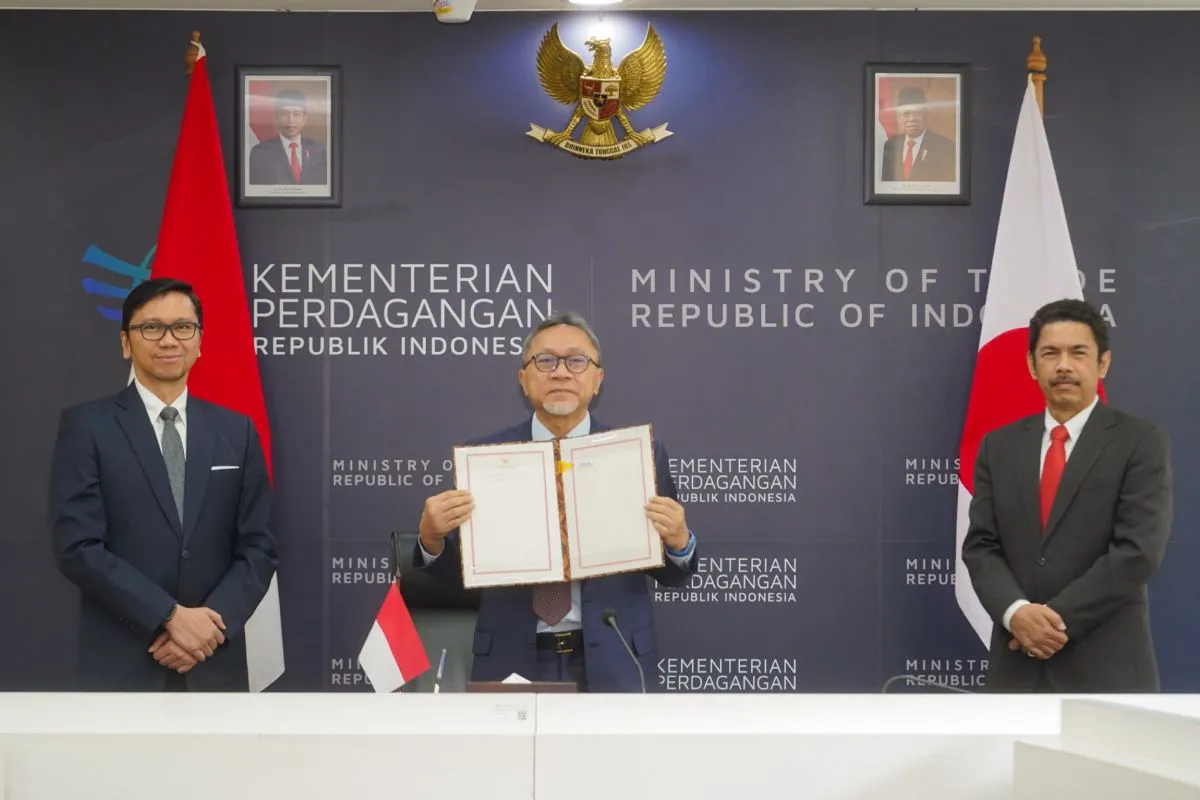WNAM REPORT: Indonesian Trade Minister Zulkifli Hasan inked the Protocol Amending the Indonesia-Japan Economic Partnership Agreement (IJEPA) with Japanese Foreign Affairs Minister Kamikawa Yoko via a video conference in Jakarta on Thursday.
In his office’s statement on Thursday, Hasan noted that the protocol is expected to shoot up the total value of Indonesia’s exports to Japan to 35.9 billion US dollars in 2028, or about 58 percent higher than the 20.8 billion dollars recorded last year.
He explained that the protocol changes several chapters of the IJEPA, namely Trade in Goods, Trade in Services, Electronic Commerce, Movement of Natural Persons (MNP), Cooperation, Intellectual Property, and Government Procurement.
Regarding trade in goods, the minister noted that the protocol encourages Japan to facilitate a wide range of Indonesian goods, including marine products, fruits, foods and beverages, and organic chemicals, to access its markets.
Meanwhile, Indonesia will ease the inflow of Japanese iron, steel, and automotive products, among others.
Drawing attention to service trade and e-commerce, the minister remarked that Indonesia and Japan had agreed to expand market access in the banking sector, collaborate to enhance capacity in the real estate and transportation sectors and pursue intensified trade through electronic systems.
As for the MNP chapter, Hasan explained that the two countries had reached an agreement on extending the working period of Indonesian caregivers in Japan, perfecting immigration and immigrant workers’ placement procedures, and broadening opportunities for Indonesian residents to work in Japan.
The IJEPA, signed on August 20, 2007, and entered into force on July 1, 2008, constitutes a bilateral trade agreement whose points include the need for Indonesia and Japan to conduct a general review to evaluate the agreement’s implementation.
During the general review for the 2015-2019 period, the two parties produced a joint report that would then be used as a foundation for rounds of negotiations on the amendment protocol whose ratification process is expected to be concluded by 2025.


